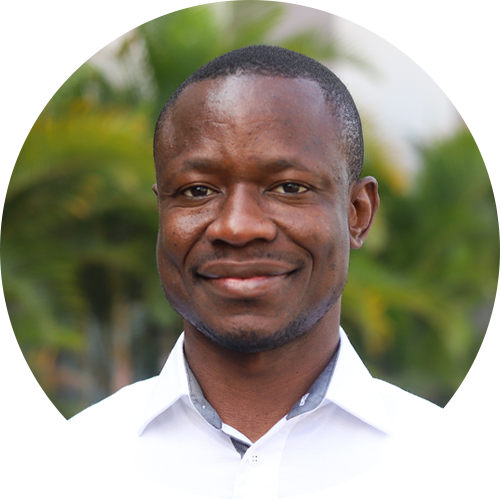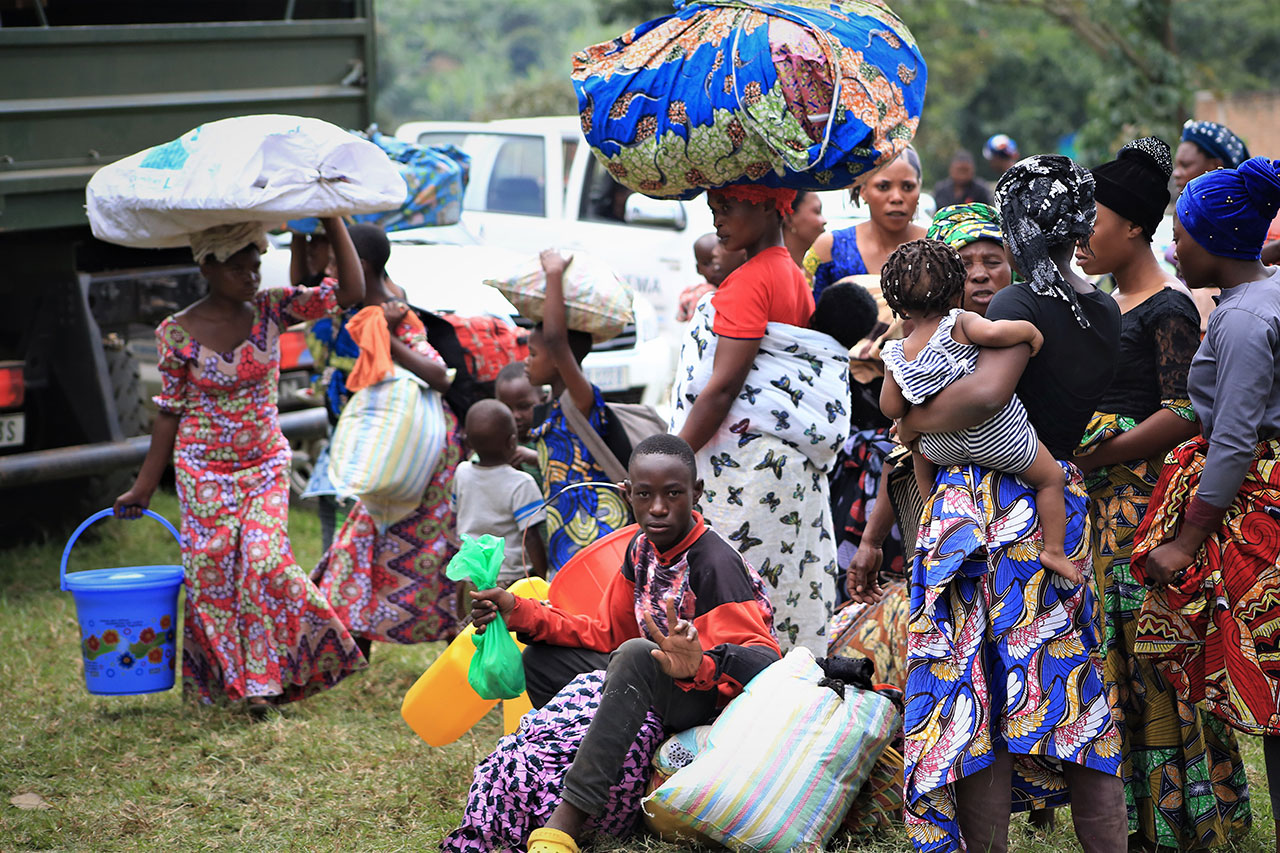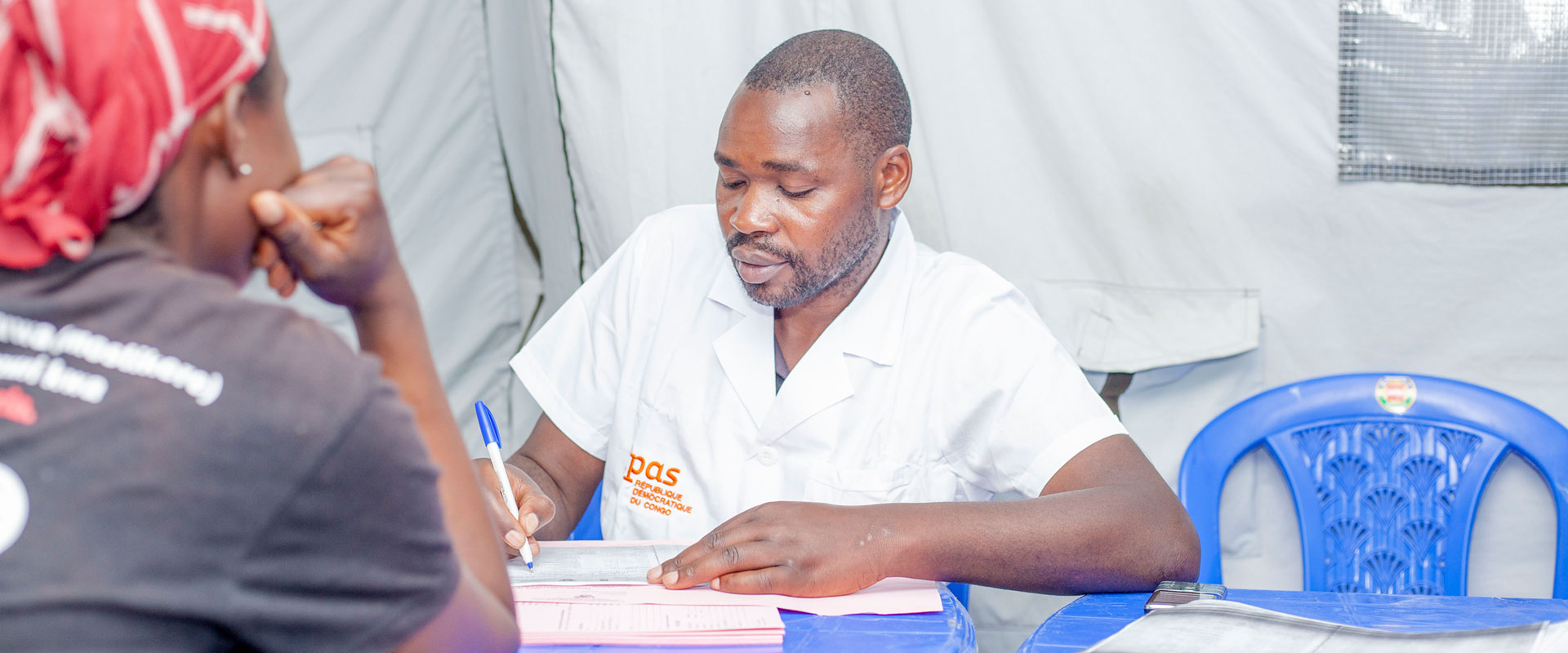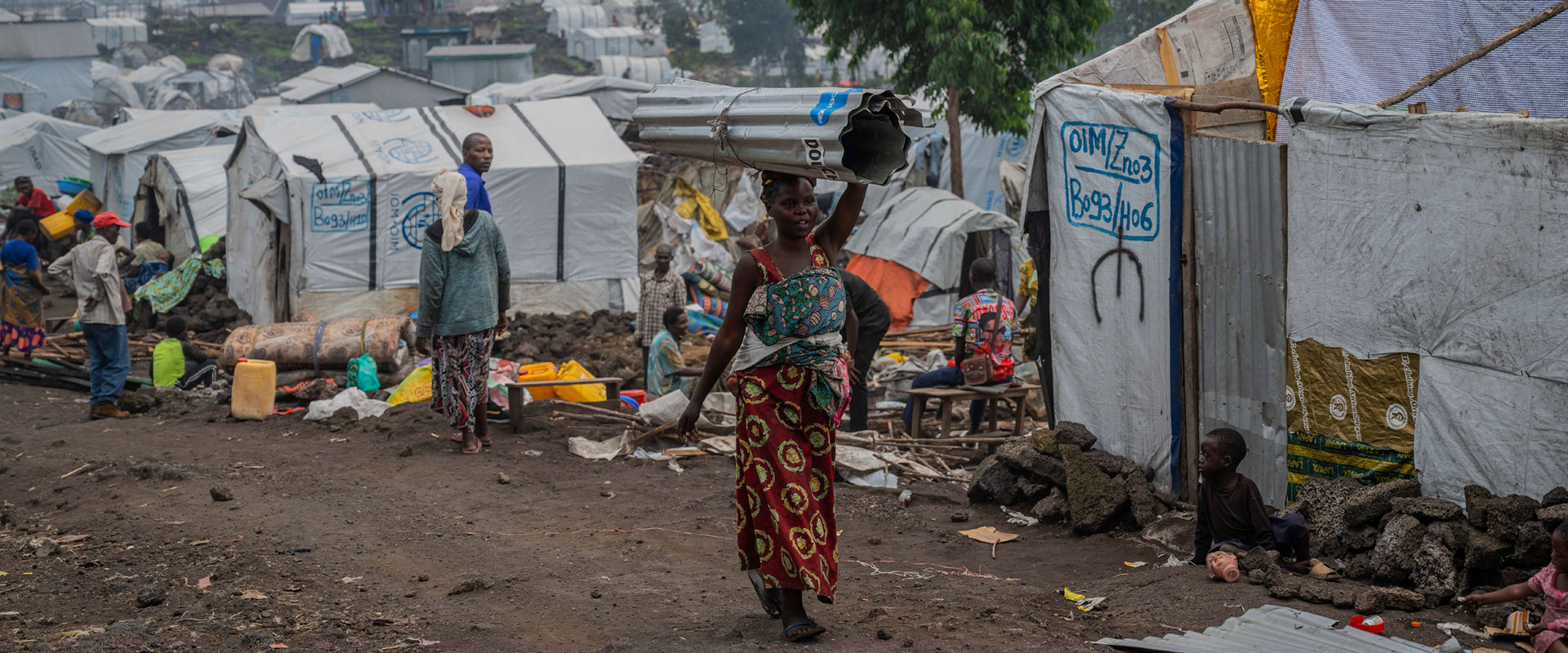Early in his career, Ipas Democratic Republic of Congo (DRC) director Dr. Jean-Claude Mulunda, then a coordinator with a refugee agency, was confronted with the plight of women and girls who had suffered sexual violence fleeing Central African Republic for refuge in DRC.
“In my report to the supervisor, I noted that over 60% of the women and girls were rape victims. Many of them, including little girls who could not be more than 12, were pregnant. They were also dealing with sexually transmitted infections and malnutrition,” he explains.

Some of the women resorted to unsafe abortion methods, leading to health complications or death. Family planning was the proposed solution, but Dr. Mulunda convinced his supervisors that this was impractical as the rebels were still fighting and the cycle would only repeat itself. His persistence paid off because the women and girls received the safe abortion care they needed.
This incident, coupled with his experience of witnessing firsthand the devastating effects of lack of information about sexual reproductive health and rights (SRHR) while growing up, strengthened his resolve to devote his career to ensuring that the silence on the need for abortion access is broken. He’s spent the last seven years at Ipas DRC doing exactly that.
Less than 10 years ago, through publishing the Maputo Protocol in the national gazette, DRC began to transition to a more progressive environment for abortion access. New standards and guidelines now guarantee access to the full extent of the law, striking old requirements such as proof of rape, parental or marital consent, and three doctors’ signatures. Now self-managed abortion with pills is widely accepted.
The need for abortion services rapidly increases in humanitarian settings. In eastern DRC, Ipas-supported clinics have grown annually from treating 300 clients in 2022 to over 4,000 clients in 2024, underscoring the urgent need for accessible reproductive health care in crises.
Here Dr. Mulunda speaks about the challenges of providing abortion care in humanitarian settings, how Ipas DRC is working toward building resilient health systems despite decades of protracted conflict, and the impact of U.S. policies.
You have adopted a community-based approach to providing health care in humanitarian settings. Could you tell us more about this?
Before Ipas’s work began in camps for people displaced by conflict in 2022, women and girls would be forced to carry pregnancies to full term as they had no access to knowledge or alternatives. When we travelled to the displacement camps to meet the women and girls, we realized that the first thing we needed to do is conduct training sessions to raise knowledge and awareness levels about SRHR. We also provided abortion care where it was needed.
The girls would go back to school two or three days after receiving abortion care, and this built trust for Ipas among community members. However, we had to go back to the drawing board after the initial project, to establish a comprehensive response that would cover the region and allow as many women and girls as possible to access abortion care.
It’s not easy to go and meet communities, discuss abortion and provide abortion services in humanitarian settings. That forced us to think about strategies based on the community context, rather than the health system. The health system then becomes a secondary response, as the first response must be at the community level.
To do this, Ipas DRC worked through Mashujaa (a Kiswahili word for heroes), a community group tasked with the responsibility of identifying people who need care, providing information and referring them. The members of the group include health-care providers, displaced people, and medical students.
This means that whenever we have outreach services, or mobile clinics, we have a ready list of clients to see. Mashujaa also help us organize the displaced people into camps, so that we can take health-care services to their doorstep by establishing the mobile clinics in the different camps.
This system of work has enabled Ipas DRC to provide advanced medical services. For example, medical students help distribute misoprostol (the medication used for abortion with pills). At the same time, we have established a network of pharmacies that we train to provide medications to women.
Could you elaborate on the specific training and support Ipas DRC provides to health-care providers to improve the quality and accessibility of SRHR services?
We train partners, especially those involved in humanitarian response, on abortion values clarification for action and transformation (VCAT) to make sure they support our initiatives and make referrals whenever they come into contact with people who need SRHR services. We also train health workers in safe abortion care.
How can the international community support your efforts?
Abortion is hardly ever the priority when funding humanitarian responses. Even in the negotiation process with donors, there’s no window for discussing abortion, yet it’s a critical service in humanitarian settings. It should be prioritized and funded.
Looking ahead, how will U.S. policies impact your work?
U.S. policies will impact our work in three major ways. The first one would be through political influence on policymakers, we foresee a promotion of restrictive policies undermining local progressive efforts such as the Maputo Protocol in Africa. Initiatives such as the Geneva Consensus have seriously hindered the progressive momentum generated by the Maputo Protocol. Although more than three-quarters of African countries approved and signed it, it is now struggling to be implemented due to the Trump administration’s imposition of conflicting policies.
The policies will also weaken the health-care system. We will likely see an increase in stigma and conscientious objections, and this will affect the availability, accessibility, and quality of care, including in humanitarian settings and during the climate change crisis. In eastern DRC, thousands of women face horrific gender-based violence, with rape used as a weapon in ongoing conflict. The U.S. government is one of the largest donors to humanitarian response. Despite progressive laws, many women and girls affected by rape—often gang-raped—struggle to access accurate information and abortion services. This is mainly due to restrictive conditions imposed by U.S. funding implementers, which create barriers within the health system and communities.
The U.S. policies will also promote gender discrimination policies, which to some extent fosters child marriage and increases the rate of school dropout for girls in low-income countries such as DRC. Child marriage, teenage pregnancy, and school dropouts create a cycle that severely undermines gender equality in the DRC. Each year, millions of young girls are subjected to rape, incest, and forced marriage, leading to unwanted pregnancies and dropping out of school. Although abortion is legal in DRC , restrictive U.S. funding policies often prevent these teenagers from exercising their rights. This not only affects their health but also traps them in the poverty cycle and increases their vulnerability to violence. In the past five years in the DRC, over 6,000 teenagers have accessed accurate information and safe abortion care through Ipas’s programs, empowering them to return to school and rebuild their futures.
What solutions do you propose?
One of the solutions is to promote self-managed abortion with pills, especially in a humanitarian setting like ours. The woman does not need to go to the facility. We also plan to use innovations like mobile apps to help with abortion self-management. Building coalitions with pharmacies is also key, as it is a pathway to ensuring that we have the networks to take abortion services where they are most needed. Above all, we’ll continue asking our donors to support Ipas DRC’s vital work.
In January 2025, violent clashes broke out in Goma, the capital of the Democratic Republic of Congo (DRC) and in North Kivu province, worsening a decades-long conflict and leaving a devastating trail of destruction. The ongoing fighting has left hundreds of thousands displaced and thousands dead, according to UN agencies. Adding to the humanitarian crisis, DRC hosts over 500,000 refugees and asylum-seekers from neighboring countries.
Sexual violence against women and girls is rampant, as rape is often used as a weapon of war, driving many to seek abortion with unsafe methods, which in turn is causing high rates of death and injury. Abortion is even more critical in humanitarian settings, yet access to sexual and reproductive health care—including abortion and contraception—is almost nonexistent in many of the camps for displaced people. The fighting affected the Internally Displaced People (IDP) camps where Ipas DRC works, notably the Kanyaruchinya and Bulengo camps, causing massive population displacement of already displaced people within a few days.
Ipas has been working to provide abortion in crisis settings for years, and we have continued to do so in the last two months despite the burgeoning security challenges. Ipas DRC is working with local partners to meet the overwhelming need in the best way possible.

Democratic Republic of Congo
Ensuring care for internally displaced people



